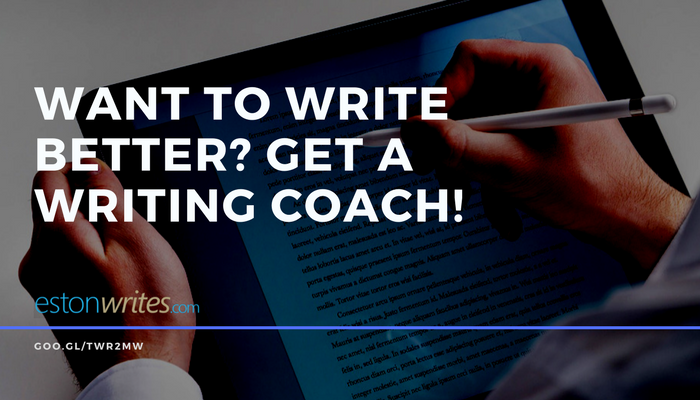
When I began my career, I certainly didn't think I needed a writing coach. I knew how to write. After all, I consistently earned stellar marks from my writing professors. When I graduated from college, I'd already landed my first full-time professional writing gig. It seemed obvious to me that my new employers recognized my natural talent when they hired me. So I went to work, got my first feature article assignment, and soon turned in the first draft of my first professional feature. I waited for the kudos to come in, expecting reassurance that I really did know how to write.
 As a professional writer, it turned out, I didn't know much.
As a professional writer, it turned out, I didn't know much.
The day after I submitted it, my editor returned the draft. She might as well have hit me in the gut with a sledgehammer; it couldn't have felt any worse. Blue pencil marks literally covered the printed manuscript. She left not a single sentence untouched. She also eliminated huge chunks of my precisely crafted verbiage, and drastically rearranged and reordered others.
I guess my face betrayed my dismay. She gave me an hour to review her edits on my own.
Then she sat down with me and went through each edit, line by line. It took three humiliating hours to go through the entire article. As she explained why she made each change, I felt like crying. I knew nothing, it seemed. Why had they even bothered to hire me? I went home that day feeling crushed. The next day, I was forced to review every change again as I entered her edits on my Mac Plus. It took all morning.
My first professional edit hurt like hell. I now know it was also the best writing instruction I'd ever received.
Looking back, I realize my boss wasn't really an editor, but something much better. I had the great fortune to be employed by a writing coach.
Not that I appreciated it at the time.
The Writing Coach I Never Wanted
I finally gathered enough courage to talk to my editor about how humiliating I'd found the editing process. "I thought I was a good writer," I said, "but you changed every sentence I wrote. I'm not sure why you hired me...and I'm wondering if I should look for another job."
She smiled and said, "You are a good writer. But I want to help you become great. That's why we went through every edit together. That's why you entered all of my edits yourself, instead of me just changing your manuscript directly and sending it to layout. You're good, but right now you're like silver ore. You're valuable, but after you've been refined, you'll really shine."
My editor sought not to humiliate, but to teach me. She acted as my writing coach from that point on. My first draft might have been acceptable, but that wasn't good enough for her. Her edits made my article much, much better. And by scrutinizing what she did, I learned a lot of lessons about writing effectively.
Get Your Writing Savaged By a Professional Writing Coach
We worked together for seven years. I'd love to tell you that after my first article, my drafts always returned from her unscathed. But of course that's not true. It did become a bit of a game with me to see how many sentences I could get into print without her making changes. The day I finally got a complete manuscript page past her pen with no alterations was like getting a gold medal.
But she still improved every single article of mine that I was lucky enough to have her work on. And we always went through and discussed each of her suggestions, even though it never took as long as that first time.
The point is that even though I knew how to write, I did not know how to write. I learned that in the only way I really think you can: by having my work ripped apart, and then put back together in front of me so I could see how it could be done even better.
In my career, I've worked with many other writers who had great potential, but not enough polish. My first editor gave me a priceless gift in working with me so closely, and I try to repay her by passing on at least some of what I learned from her to others.
Wherever you are as a writer, I encourage you to get honest feedback and learn from it. Find someone who will provide brutally direct input about what works, and what doesn't. Ideally, you know someone who knows how to write effectively across a variety of styles and can help you meet your writing goals.
And if you need a writing coach to help you take your pretty-good work to a higher standard of excellence, I'd be happy to help. Contact me and let's talk.